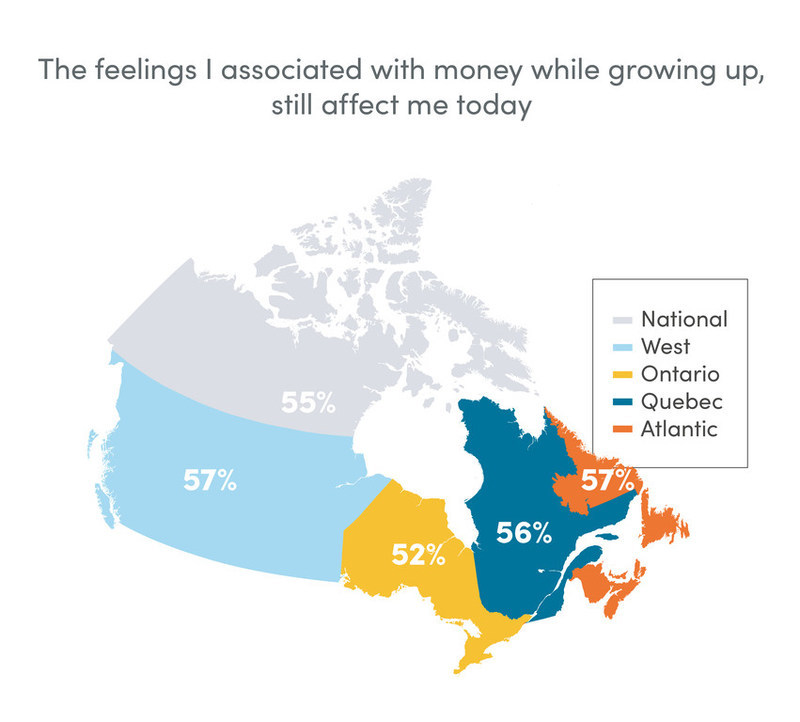Meridian Credit Union research finds that it can be hard to break free from childhood experiences

We learn a lot of things as kids. Lots of good things that set the foundations for our lives ahead, but also negatives that can inhibit us for years to come.
While children may enjoy a carefree attitude to finances and perhaps appear to not notice how much things cost (all parents know this!), they are like sponges, soaking up experiences and forming attitudes.
And that can result in bad money habits as adults according to new research from Meridian Credit Union.
Its poll found that 55% of Canadians agree their childhood experiences about money still impact them to this day and 42% say early experiences about money have left them feeling anxious and worried about it as adults.
"Built-in biases, fears and beliefs from the past can have lasting impact on confidence levels felt by Canadians and how they approach managing and investing money, but fortunately, misconceptions about money and wealth can be changed," says Dilys D'Cruz, VP and head of wealth management at Meridian.
Sense of shame
More than half of respondents said that their family was not rich when they were kids, but that they had all they needed.
However, 13% said that money was a source of tension and arguments in their childhood home and 23% reported that their parents were always worried about money.
Around one fifth said that this has left them with secret shame about their family finances when they were growing up.
"Challenging the perceptions that are holding you back can help build resilience and motivate you to take actionable steps towards realizing your financial and life goals,” said D’Cruz.
Nationally, 41% of Canadians report that their families "didn't talk about money" at all, almost half (48%) said they've learned about money on their own – and only 17% learned about it at school.
Nancie Taylor, a senior financial advisor at Meridian Credit Union in the Niagara peninsula has shared some tips with Wealth Professional on how advisors can help parents talk to children about money.
Barriers to help
This lack of conversation around money may contribute to the 59% who say they prefer to manage their own money, with just 40% working with a financial planner.
However, there is also a misconception about level of assets required to work with an advisor.
Close to one-in-three (27%) Canadians believe they need $100,000 or more to work with a financial advisor.
This belief is most prevalent amongst Quebecers (32%), Canadians 55 years+, and Canadian men (32% vs. 22% for women).
Seventeen per cent of Canadians admit they aren't sure where to find a financial advisor they can trust and 25% are worried about the costs involved – a concern that's higher amongst younger Canadian adults.

Image credit: CNW Group/Meridian Credit Union



